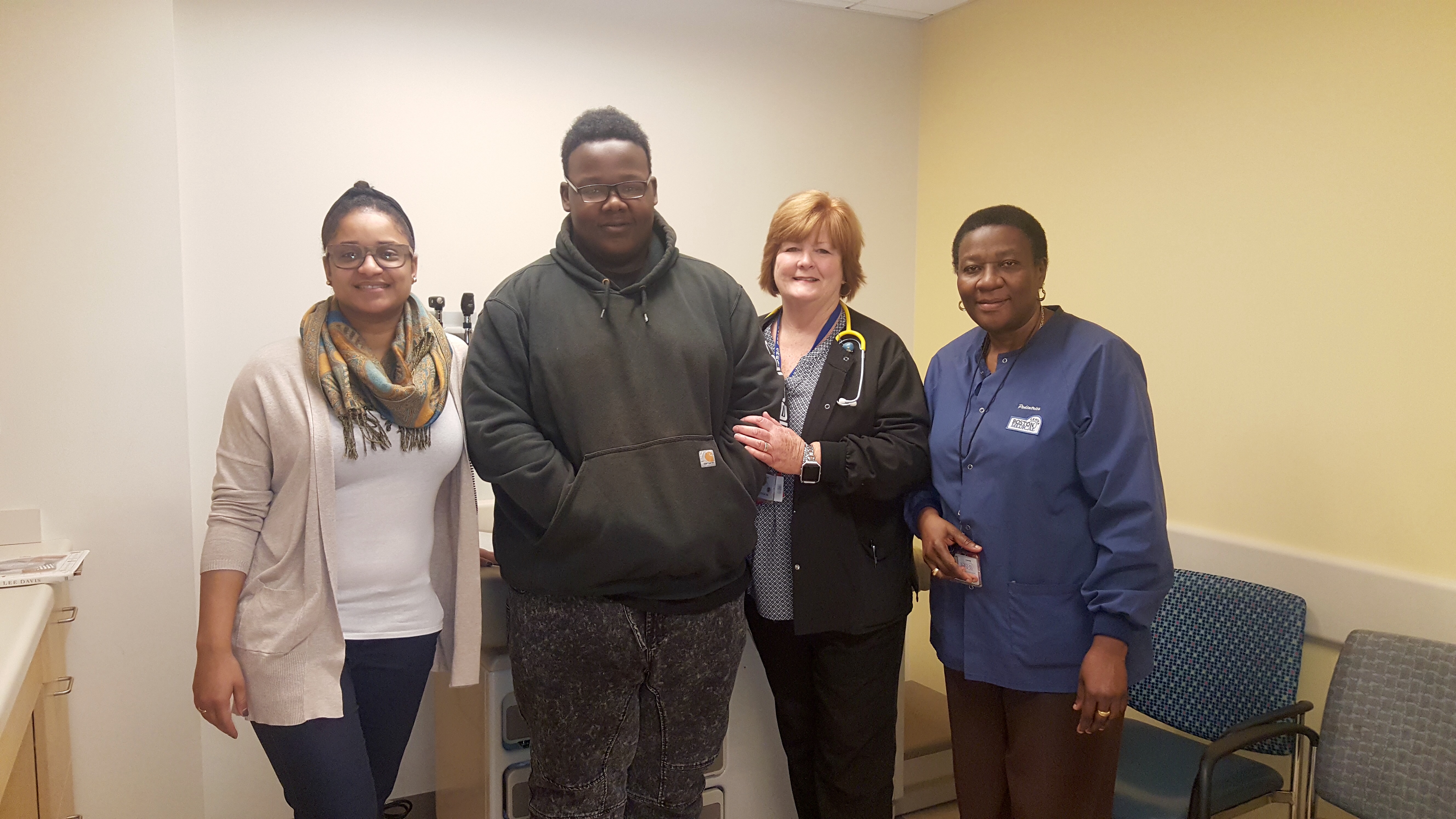
When Armani Lewis reflects on his childhood and early adolescence, he remembers countless days feeling short of breath and weak. He and his family were no strangers to ambulances, emergency room visits and hospital stays. Asthma, an incurable chronic lung disease marked by recurrent episodes where airways become narrow and tight, was consuming the Lewis’ lives.
“When I met Armani, he was being hospitalized five to 10 times a year for asthma attacks. And several of those were in the intensive care unit,” explains Robyn Cohen, MD, MPH, pediatric pulmonologist at Boston Medical Center. “He also had multiple emergency room visits and sick visits to the primary care clinic.”
In the United States, asthma affects more than six million children in varying degrees, from mild to severe. For kids like Armani, their airways are already inflamed by the disease but are narrowed even more by certain triggers, such as cold air or exercise. The result is a potentially life-threatening asthma attack, marked by coughing, wheezing, chest tightness and shortness of breath. When the medication meant to expand Armani’s airways during an attack was not effective, he was rushed to the hospital. “His family had to live close to the hospital because they were here so much,” says Cohen. “Asthma affects more than a child’s health. It affects the entire functioning of a family.”
“Asthma was holding me back from school,” remembers Armani, 18. “I missed a lot of days because I would be in the hospital for weeks at a time. It was depressing.” In turn, he was struggling academically and his grades were slipping.
Armani’s doctors at BMC were determined to find the best course of treatment for his asthma. Due to the complicated nature of his disease, it required carefully coordinated care and teamwork between his primary care group led by Pediatrician Sean Palfrey, M.D., his pulmonary group headed by Cohen and his family. Together, they closely monitored and tracked his asthma episodes and triggers and explored different treatment regimens. “Armani had chronic symptoms all the time, made worse by many allergies and triggers,” explains Cohen. “It took us a while to figure out what was going to unleash him from this and really help him.”
“To have him feel healthy enough and empowered enough to live this whole, enriched life—that’s it. That’s the goal.” — Robyn Cohen, MD, MPH
Through it all, Armani’s parents never gave up. “Despite busy work schedules, they came to all of his appointments, were always at his bedside and constantly advocating for him,” notes Cohen. “They were always so appreciative to us. But in reality it was a two-way street—it’s easy for us to say what he needs but they’re the ones who have to live it every day and stick to this complex medication regimen.”
Following a severe asthma attack landing Armani in the intensive care unit again, Cohen approached Armani and his family about starting antibody injections with the potential to significantly reduce his asthma symptoms. However, the injections—three at a time—needed to be administered every two weeks at the hospital and during an hour-long visit. “It took some difficult decision-making for them but they dove in and never looked back,” remarks Cohen.
Shortly after starting his new treatment, Armani’s health underwent a complete transformation. “It changed my life,” he says. “I didn’t know something like this would ever exist for me. My asthma is under control. I don’t get as sick as I used to and I haven’t been going to the hospital.” He began attending school regularly, and started a part-time job. “The effect was profound,” says Cohen. “His family no longer needed to live near the hospital. His grades improved. We talked about things outside of asthma, like college. It meant he had more on his mind than when his next asthma attack was going to happen.”
Then, the biggest sign of improvement: Armani wanted to get fit and try out for the football team. “To have him feel healthy enough and empowered enough to live this whole, enriched life—that’s it. That’s the goal,” says Cohen. Armani’s Pediatric Pulmonary Nurse Betty Pierson, RN, arranged to acquire a gym membership for him thanks to the philanthropically-supported Kids Fund, which cares for needs beyond standard health care. “I see my role as an asthma doctor to do everything possible to make asthma a non-issue, so children and families can reach their potential,” adds Cohen. “Nothing makes me happier than to see Armani and his family doing just that.”
With sights set on the future, Armani is eager to go to college and own a business one day—dreams that have become goals, thanks in part to his team of caregivers at BMC. “My nurses and doctors are like my second family, and they’re always encouraging me,” he concludes. “Today, I can do more and I have a lot of energy. Things are going uphill.”